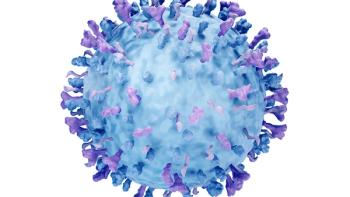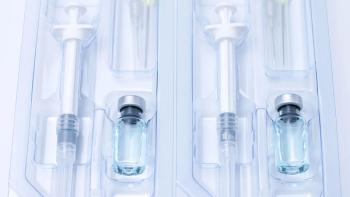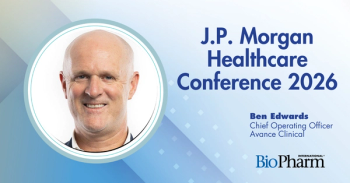
- BioPharm International-02-01-2006
- Volume 19
- Issue 2
Outsourcing: DSM Redefines its Biomanufacturing Strategy
Moving aggressively to implement its Vision 2010 strategy, which debuted in October 2005, DSM N.V. (Heerlen, Netherlands) announced in December 2005 that it would shut down its Montreal biomanufacturing facility in early 2006. The move doesn't signal an exit from manufacturing, however, but a change in focus; DSM will simultaneously expand its expression-technology relationship with Crucell (Leiden, the Netherlands). Both moves reflect changing circumstances in the biomanufacturing sector.
Moving aggressively to implement its Vision 2010 strategy, which debuted in October 2005, DSM N.V. (Heerlen, Netherlands) announced in December 2005 that it would shut down its Montreal biomanufacturing facility in early 2006. The move doesn't signal an exit from manufacturing, however, but a change in focus; DSM will simultaneously expand its expression-technology relationship with Crucell (Leiden, the Netherlands). Both moves reflect changing circumstances in the biomanufacturing sector.
Jim Miller
DSM's Montreal facility was originally designed and built by BioIntermediair, a Dutch biomanufacturer acquired by Gist Brocades in the mid-1990s. The facility became part of DSM when the company acquired Gist Brocades in 1999. It offered cell culture development and production up to the 2,000 L scale, and microbial fermentation development and production up to 3,500 L. It was built with the financial participation of Société generale de financement du Québec (SGF), a government-sponsored economic development agency. DSM bought out SGF's 40% stake in the facility in July 2005 as a prelude to the shutdown.
DSM announced in 2002 that it would launch a $200 million expansion of the Montreal facility. That expansion was to include infrastructure to support up to four 15,000 L bioreactors, two of which were to be built immediately and become operational in 2005. SGF was to finance 40% of the cost of that expansion, but after funding some initial engineering work, the DSM management board refused to commit to funding the expansion program amid uncertainty about the direction of the biopharmaceutical market and biomanufacturing technology.
Ultimately DSM management concluded that the Montreal operation would never be profitable. In fact, the company expects to add €20 million to its pretax bottom line by closing Montreal along with DSM's South Haven, MI, chemical API manufacturing site.
AN OVERCROWDED MARKET
DSM's decision to close the Montreal operation is no surprise given that the biomanufacturing industry has too many players. The Pharm-Source Contract Services Database counts over 40 providers of contract biomanufacturing and process development services, primarily in North America and Europe. Most of these are small enterprises that operate small development- and pilot-scale bioreactors and fermenters (i.e., under 1,000 L) and have revenues under $10 million.
The issue isn't one of overcapacity. In fact, the cumulative capacity of the bottom 2/3 of providers would barely add up to the size of two commercial bioreactors. Rather, it is performance that should be of concern in this overpopulated market. While the five contract manufacturing organizations (CMOs) with large-scale capacity (10,000 L and larger) can practically dictate their terms, the 35 small-scale providers are competing so fiercely for the available projects that profits are hard to come by. In addition, because the available projects are spread over so many providers, few biomanufacturers are accumulating the critical mass of experience and expertise that can deliver top quality process solutions and manufacturing performance.
The biomanufacturing industry would be better off with fewer players, but it doesn't look as though a real shakeout is coming any time soon. Aside from the DSM Montreal operation, the only other company that is likely to drop out in the near-term is Abgenix, which has been selling excess capacity at its Fremont, CA, facility. Amgen will acquire Abgenix and that capacity will be dedicated toward internal product development. In the meantime, two new CMOs (Cytovance, Oklahoma City, OK and Cook Pharmica, Bloomington, IN) will come on line in 2007.
FOCUS ON TECHNOLOGY
Despite the Montreal facility shutdown, DSM remains committed to biomanufacturing. Just a day after announcing the shutdown, the company announced the expansion of its strategic alliance with biotech firm Crucell to promote Crucell's proprietary PER.C6 expression system.
The companies said they will "develop and offer a fully integrated PER.C6 protein and monoclonal antibody production package" for protein and monoclonal antibody production. The package will include optimized clone generation technology, tailored media, fermentation processes (batch, fed-batch, and perfusion), fermentation equipment design, and regulatory support. The companies will establish a joint R&D center with facilities in the U.S. and the Netherlands.
DSM's biomanufacturing facility in Groningen, the Netherlands, will increasingly focus on supporting projects incorporating the PER.C6 system, especially manufacturing Phase I/II clinical supplies and pilot-scale manufacturing. DSM officials expect that they should have sufficient capacity at Groningen to support the PER.C6 projects as well as projects incorporating other systems. No capacity expansion is planned. The companies are in the process of negotiating arrangements with other CMOs to act as commercial manufacturing partners for products using the PER.C6 system.
DSM and Crucell will work together to expand the number of licenses for PER.C6 in the production of recombinant proteins and monoclonal antibodies, with a particular focus on North America. Crucell has exclusive rights to the system for the vaccine and gene therapy markets, and has been actively signing new agreements for viral production in recent months.
The focus on the PER.C6 venture with Crucell appears to reflect a decision at DSM that improvements in process yields will ultimately trump the need for more production capacity. In announcing the closing of the Montreal facility, the company said, "In the field of biopharmaceuticals the development of cell line technology, the software, will potentially be of more impact than the installment of new contract manufacturing capacity, the hardware."
DSM's position closely mirrors that of Dowpharma (Midland, MI), a business unit of Dow Chemical, which decided last year to close its biomanufacturing operations in Smithfield, RI, and focus its efforts on its PFenex microbial expression technology. Just days after the DSM-Crucell announcement, Dowpharma announced that Cambrex Bio Science (Baltimore, MD) had agreed to become its first manufacturing partner for the PFenex technology. The two companies will develop a standardized technology transfer package to facilitate adoption by contract manufacturing clients.
Cardinal Health (Somerset, NJ) has adopted a similar position as it promotes its GPEx cell line engineering technology. GPEx was developed by Gala Design (Middleton, WI), which Cardinal Health acquired in 2002. In early January, the company signed an agreement with Centocor (Horsham, PA) to engineer cell lines to express undisclosed Centocor monoclonal antibodies. Cardinal Health has development scale capabilities but no large-scale commercial bioreactors.
Biomanufacturing experts don't necessarily agree that proprietary expression systems provide a big advantage over what can be achieved with well-designed processes incorporating public domain hosts like CHO cells and E coli. This is especially true when considering the licensing fees that will have to be paid to use proprietary systems. However, biomanufacturers clearly believe they can make a strong case that their proprietary systems can deliver better yields and faster development cycles. Perhaps more important, the expression technology strategy allows companies to stay in the game without risking large amounts of capital for new bioreactor capacity.
Jim Miller is president of PharmSource Information Services, Inc., 703.914.1203, Fax: 703.914.1205,
Articles in this issue
about 20 years ago
From the Editor in Chief: Collective and Individual Progressabout 20 years ago
Final Word: Statisticians Tackle More Than Clinical Trialsabout 20 years ago
Near-Infrared Analysis of Critical Parameters in Lyophilized Materialsabout 20 years ago
Regulatory Beat: FDA Moves to Renew User Fees and Promote PreparednessNewsletter
Stay at the forefront of biopharmaceutical innovation—subscribe to BioPharm International for expert insights on drug development, manufacturing, compliance, and more.




